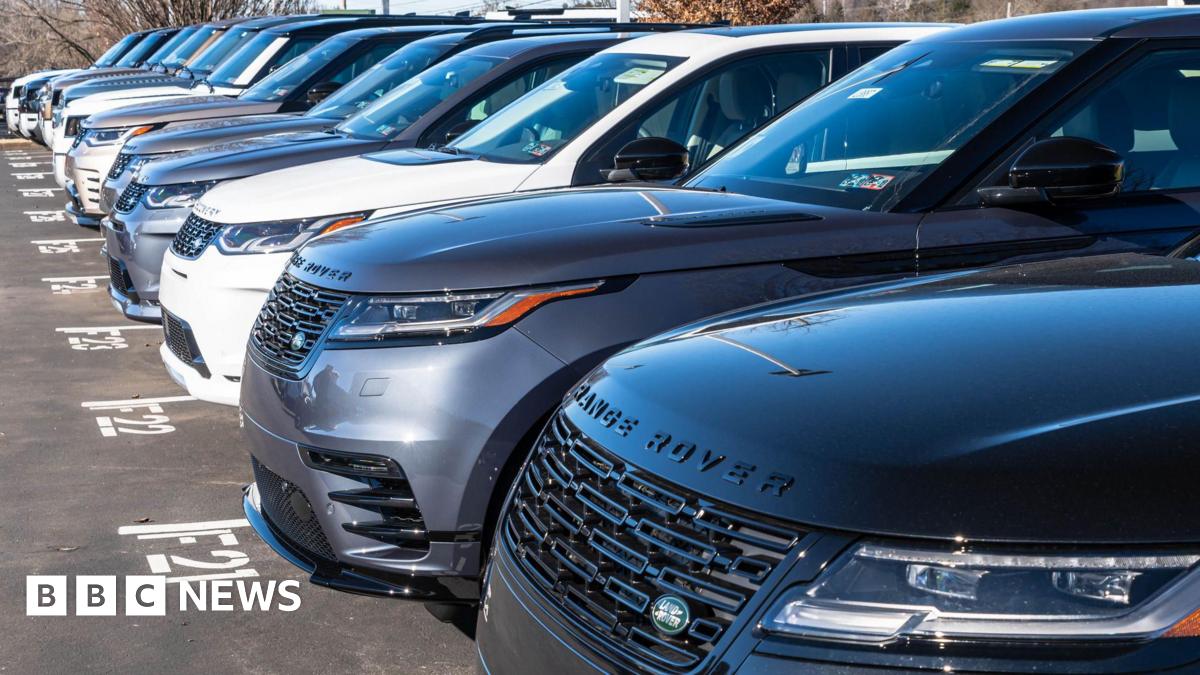The company says production has now returned to normal levels.
JLR also reported additional “cyber related costs” of £196m, on top of the headline loss. These are understood to include the costs of bringing in outside consultants and other support in response to the hacking attack.
According to the carmaker, its revenues for the quarter fell 24%, from £6.5bn last year to £4.5bn.
This was heavily affected by the production stoppage. However, the effects of US tariffs on exports from both the UK and Slovakia also had an impact, as did the phasing out of a number of Jaguar models ahead of the brands planned re-launch as an all-electric marque.
The crisis at JLR helped drive UK car production in September to its lowest level for the month since 1952, according to the Society of Motor Manufacturers and Traders.
Its impact was also felt well beyond JLR itself. According to the Office for National Statistics, the drop in production of some 27,000 vehicles knocked 0.17% off economic output in September.
The company sits at the top of a large and complex supply chain involving thousands of businesses worldwide, including hundreds in the UK, many of whom are heavily reliant on orders from the carmaker.
The stoppage meant a large number of them, including small and medium sized businesses, were also forced to shut some or all of their operations – prompting warnings of potential bankruptcies.
The government agreed to provide guarantees for JLR to obtain loans worth up to £1.5bn in order to help its supply chain.
Separately, the carmaker itself set up a financing scheme, allowing suppliers to obtain early payment for new orders, in order to ease their cashflow.

Your point of view caught my eye and was very interesting. Thanks. I have a question for you. https://accounts.binance.info/ru/register?ref=O9XES6KU